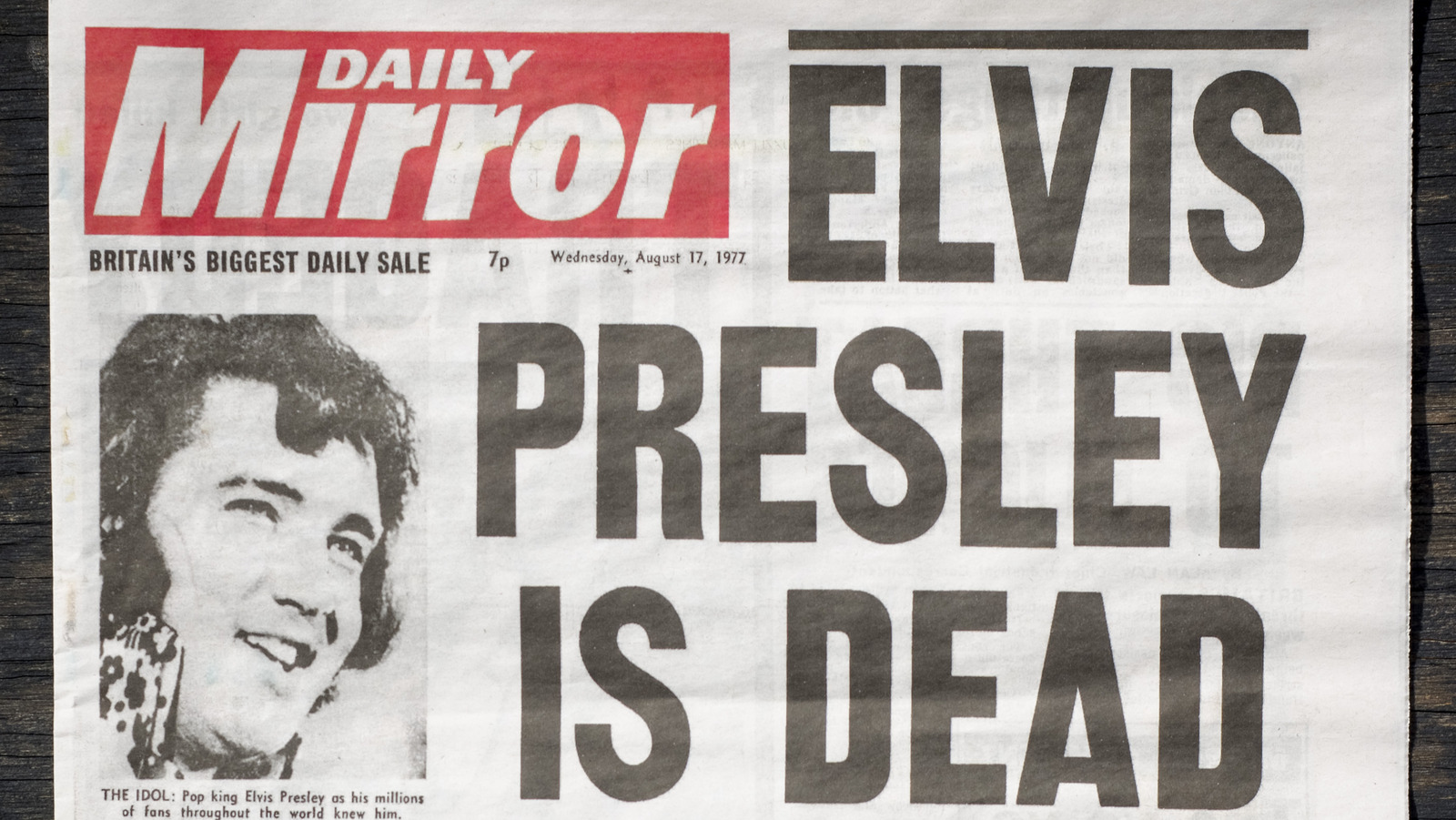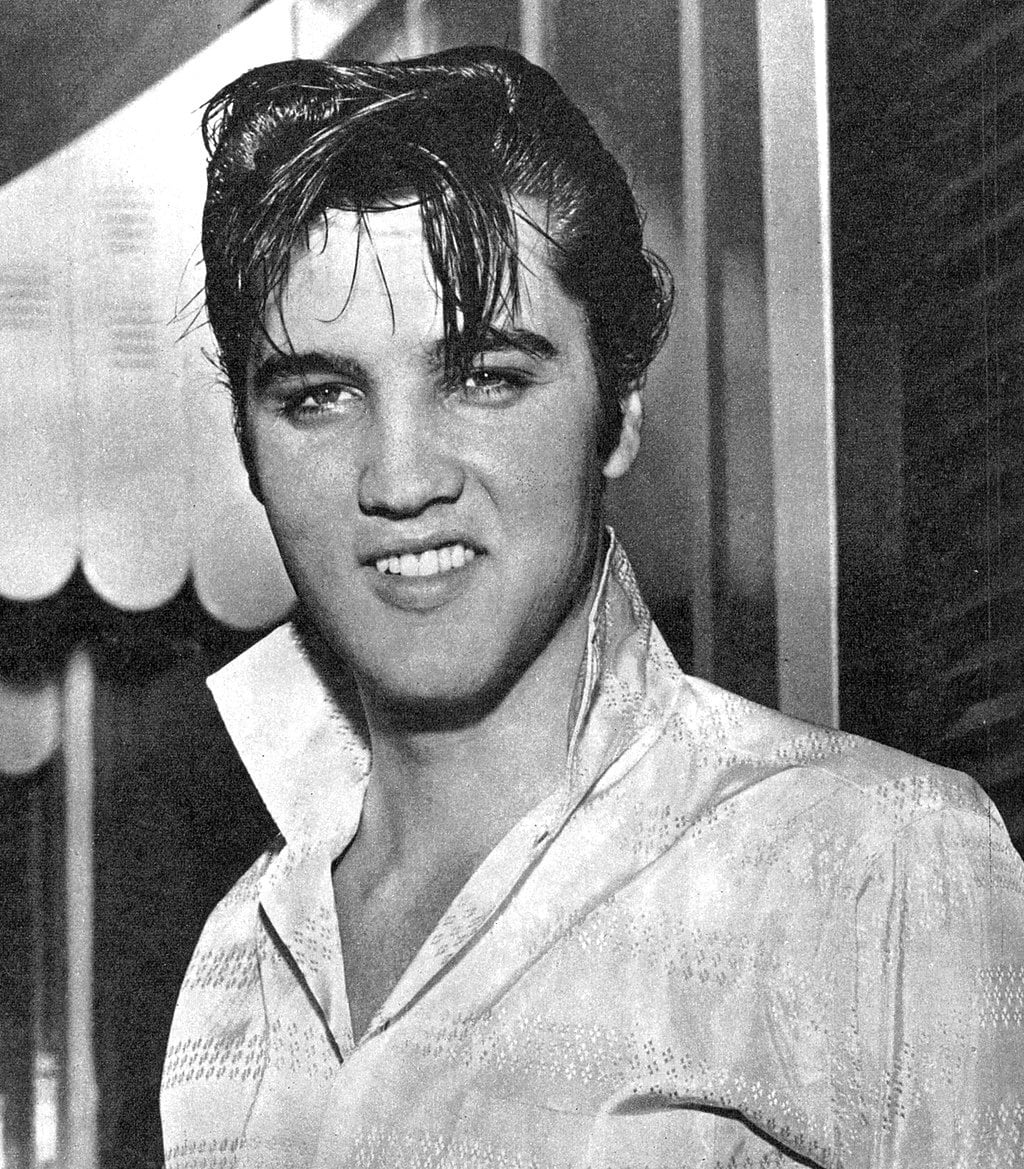When Did Elvis Die: A Comprehensive Exploration Of The King Of Rock And Roll's Legacy
The death of Elvis Presley remains one of the most significant moments in music history, marking the end of an era for millions of fans worldwide. Known as the "King of Rock and Roll," his influence on the music industry and popular culture remains unparalleled even decades after his passing. In this article, we will explore the circumstances surrounding Elvis's death, his remarkable career, and the legacy he left behind.
Elvis Presley's death on August 16, 1977, sent shockwaves across the globe, leaving fans devastated and the world mourning the loss of a true musical icon. Despite the controversies and health struggles that surrounded his later years, Elvis's contributions to music and entertainment remain timeless. This article delves into the events leading up to his death, the impact of his passing, and how his legacy continues to inspire new generations.
From his early days as a humble singer from Tupelo, Mississippi, to becoming a global superstar, Elvis Presley's journey was nothing short of extraordinary. Understanding when and how Elvis died is crucial in appreciating his lasting impact on the music industry and beyond. Join us as we uncover the details surrounding his death and celebrate the life of one of the most iconic figures in music history.
Read also:Unlock The World Of Bollywood With Bollyflix Vip Your Ultimate Entertainment Guide
Table of Contents
- Elvis Presley's Biography
- When Did Elvis Die?
- Cause of Death
- Elvis's Last Days
- Health Issues Leading to Death
- Elvis's Lasting Legacy
- Memorials and Tributes
- Impact on Fans and Music
- Common Myths About Elvis's Death
- Conclusion
Elvis Presley's Biography
Elvis Aaron Presley was born on January 8, 1935, in Tupelo, Mississippi. He grew up in a modest household with his parents, Vernon and Gladys Presley. From a young age, Elvis exhibited a passion for music, often singing in church and at school. His career began to take shape in 1953 when he recorded his first demo at Sun Studios in Memphis, Tennessee.
Data and Facts About Elvis Presley
| Full Name | Elvis Aaron Presley |
|---|---|
| Date of Birth | January 8, 1935 |
| Place of Birth | Tupelo, Mississippi |
| Occupation | Singer, Actor |
| Date of Death | August 16, 1977 |
| Place of Death | Memphis, Tennessee |
Elvis's breakthrough came in 1956 with the release of his self-titled debut album, which featured hits like "Heartbreak Hotel" and "I Want You, I Need You, I Love You." His unique style, combining elements of rock and roll, country, and rhythm and blues, quickly made him a household name.
When Did Elvis Die?
Elvis Presley passed away on August 16, 1977, at the age of 42. The exact time of his death was recorded as 3:30 PM local time at his Graceland mansion in Memphis, Tennessee. His unexpected passing shocked the world and left a void in the music industry that many believed could never be filled.
Key Details About His Death
- Date: August 16, 1977
- Location: Graceland, Memphis, Tennessee
- Cause: Cardiac Arrhythmia
Elvis's death was sudden and tragic, marking the end of an era for millions of fans around the world. The news spread quickly, leading to an outpouring of grief and tributes from fans and fellow musicians alike.
Cause of Death
The official cause of Elvis Presley's death was listed as cardiac arrhythmia. However, the circumstances surrounding his passing were complicated by years of declining health and substance abuse. At the time of his death, Elvis was reportedly suffering from numerous health issues, including obesity, heart disease, and prescription drug dependency.
Medical Factors Contributing to His Death
- Severe obesity
- Heart disease
- Prescription drug abuse
- Stress and exhaustion from his grueling tour schedule
According to medical records, Elvis had been prescribed numerous medications in the months leading up to his death, some of which contributed to his declining health. The toxicology report revealed the presence of several drugs in his system, including barbiturates and opiates.
Read also:Does Drew Carey Have Any Children Exploring The Life And Family Of A Beloved Comedian
Elvis's Last Days
In the days leading up to his death, Elvis had been experiencing significant health issues. He canceled several concerts due to exhaustion and illness, and his close friends and family had expressed concerns about his well-being. On the morning of August 16, Elvis was found unresponsive in his bathroom by his girlfriend, Ginger Alden.
Emergency services were called immediately, but despite their efforts, Elvis could not be revived. His passing marked the end of a tumultuous period in his life, where he struggled with personal demons and professional pressures.
Symptoms Leading to His Death
- Extreme fatigue
- Shortness of breath
- Swelling in the legs and ankles
- Difficulty sleeping
Elvis's last days were marked by a combination of physical and emotional struggles, highlighting the toll his lifestyle had taken on his health.
Health Issues Leading to Death
Elvis's health had been deteriorating for several years before his death. Chronic conditions such as obesity, heart disease, and gastrointestinal issues were compounded by his dependency on prescription drugs. His busy schedule as a performer left little time for rest or recovery, exacerbating his health problems.
Factors Contributing to His Health Decline
- Unhealthy diet
- Lack of exercise
- Stress from touring and performing
- Prescription drug misuse
Medical experts have suggested that Elvis's reliance on prescription medications, combined with poor lifestyle choices, significantly contributed to his premature death. His case serves as a cautionary tale about the dangers of substance abuse and neglecting one's health.
Elvis's Lasting Legacy
Despite the tragic circumstances surrounding his death, Elvis Presley's legacy continues to thrive. Known as the "King of Rock and Roll," he revolutionized the music industry with his unique voice, charismatic stage presence, and innovative sound. His influence can be seen in countless artists across various genres, from rock and pop to country and blues.
Elvis's impact extends beyond music, as he became a cultural icon and symbol of the American Dream. His life and career have been the subject of numerous books, documentaries, and films, ensuring that his story remains relevant for future generations.
Memorials and Tributes
Elvis Presley's death led to an outpouring of tributes from fans and fellow musicians worldwide. Memorials were held in cities across the United States, and thousands of fans gathered at Graceland to pay their respects. In the years since his passing, numerous tributes have been created to honor his memory.
Notable Memorials
- Graceland: Elvis's home in Memphis, now a museum and popular tourist attraction.
- Elvis Presley Boulevard: A major street in Memphis named in his honor.
- Elvis Week: An annual event held in Memphis to celebrate his life and music.
These memorials serve as a testament to Elvis's enduring influence and the love and admiration his fans continue to show.
Impact on Fans and Music
Elvis Presley's death had a profound impact on his fans and the music industry as a whole. For many, his passing marked the end of an era, as he was one of the defining figures of 20th-century popular culture. His music continues to inspire new generations of fans, ensuring that his legacy lives on.
According to a report by the Rock and Roll Hall of Fame, Elvis's influence on music and entertainment cannot be overstated. His ability to blend different genres and appeal to diverse audiences set a new standard for artists in the industry. His death, while tragic, only served to solidify his status as a legendary figure in music history.
Common Myths About Elvis's Death
Over the years, numerous myths and conspiracy theories have emerged about Elvis Presley's death. Some have suggested that he faked his death and went into hiding, while others believe his passing was the result of foul play. These theories, though entertaining, lack credible evidence and have been largely dismissed by experts.
Debunking Common Myths
- Elvis faked his death: No credible evidence supports this claim.
- Elvis was murdered: Investigations concluded that his death was due to natural causes.
- Elvis's body was stolen: This rumor was debunked by authorities and family members.
While these myths continue to circulate, they do little to detract from the reality of Elvis's passing and the profound impact it had on the world.
Conclusion
Elvis Presley's death on August 16, 1977, marked the end of an era for millions of fans worldwide. Despite the tragic circumstances surrounding his passing, his legacy as the "King of Rock and Roll" continues to inspire new generations of fans and musicians. Through his music, memorials, and the countless tributes in his honor, Elvis's influence remains as strong as ever.
We invite you to share your thoughts and memories of Elvis in the comments below. For more articles on music history and legendary artists, explore our website and discover the stories behind the icons who shaped the industry.


